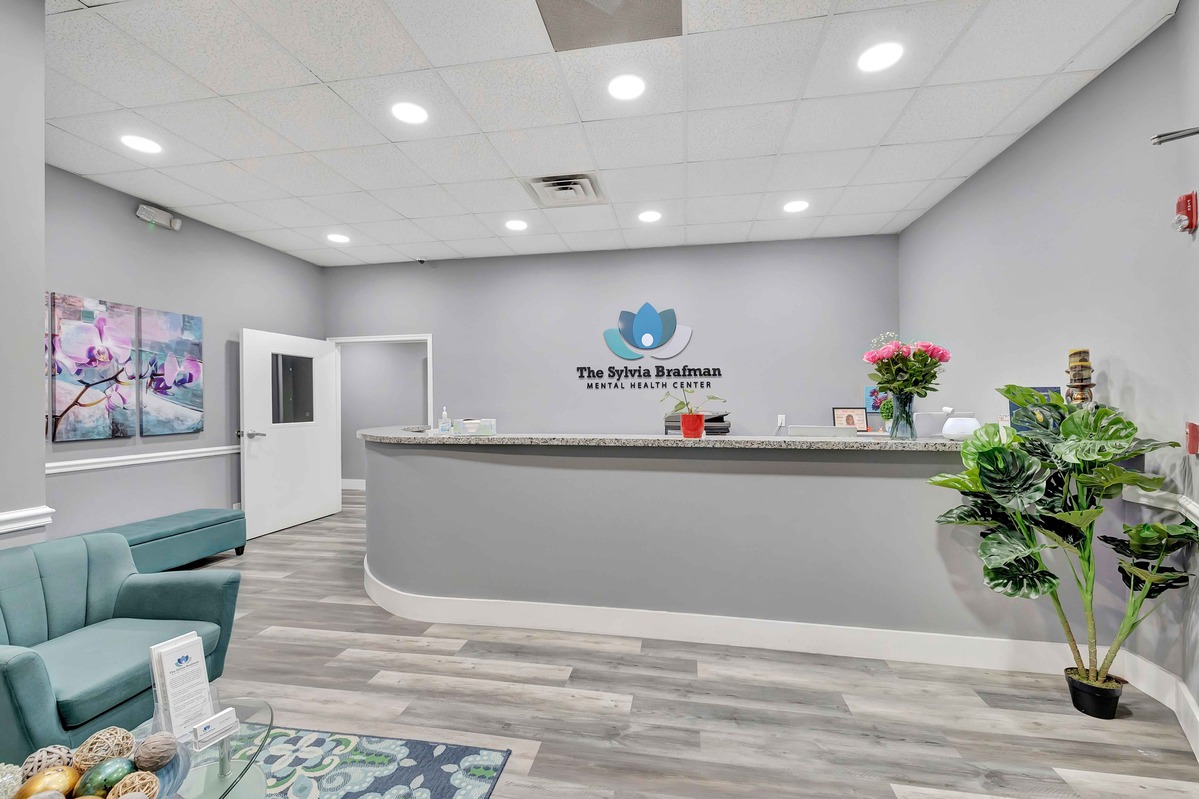Approximately one-third of individuals with depression who failed to find relief through medication achieve complete remission with Transcranial Magnetic Stimulation (TMS). Learn more about this non-invasive brain stimulation technique and how to access its transformative benefits in Florida. Also, uncover details related to insurance and TMS treatment coverage.

TMS (Transcranial Magnetic Stimulation) Treatment in Florida
What is Considered Transcranial Magnetic Stimulation (TMS) Therapy?
Transcranial Magnetic Stimulation (TMS) therapy is a non-invasive procedure used to treat various mental health conditions, including depression, anxiety, and certain neurological disorders. It involves using electromagnetic coils placed against the scalp to deliver focused magnetic pulses to specific regions of the brain associated with mood regulation.
These neurostimulation techniques activate nerve cells in the brain in areas that may be underactive in individuals with these conditions. TMS therapy is typically administered in multiple sessions over several weeks. Each session lasts about 20 to 40 minutes. The neuromodulation therapy is generally well-tolerated, with minimal side effects compared to traditional treatments such as medication or electroconvulsive therapy (ECT). TMS side effects, such as scalp discomfort or a minor headache during or after the session, are usually mild. They tend to decrease over time, ensuring TMS efficacy and safety. However, it’s always a good idea to consult with a qualified healthcare provider to determine if this is the right treatment option for your specific condition and medical history.

Is Transcranial Magnetic Stimulation (TMS) Treatment Evidence-Based?
In recent years, Transcranial Magnetic Stimulation (TMS) has gained considerable attention for its evidence-based approach to mitigating symptoms linked to depression and various psychiatric disorders. A multitude of TMS clinical trials have presented compelling evidence regarding its efficacy. This is especially true with TMS and Major Depressive Disorder (MDD) resistant to traditional antidepressant medications or therapies.
Repetitive Transcranial Magnetic Stimulation (rTMS) is commonly employed in the treatment of depression and is often used therapeutically for longer durations involving multiple sessions administered over several weeks. Despite its scientific validation for certain conditions, TMS may not always be the initial treatment option. The decision to pursue TMS hinges on several factors, such as the specific diagnosis, treatment history, and the patient’s overall health status. Furthermore, ongoing research is delving into TMS’s potential beyond depression, with encouraging findings emerging, including TMS for migraine treatment.

What is the Success Rate of TMS Therapy in FL?
The success rate of Transcranial Magnetic Stimulation (TMS) therapy varies depending on factors like the specific clinic, patient population, and the severity of the conditions. However, research and clinical studies have shown that TMS therapy can yield success rates from 30% to 60% in achieving significant improvement or symptom remission, particularly in cases of depression resistant to traditional treatments.
When considering TMS therapy in Florida, you should consult with qualified healthcare providers and research facilities to understand the success rates specific to your circumstances. Call 877-958-9212 to schedule a free assessment today.
Our team of dedicated professionals, at The Sylvia Brafman Mental Health Treatment Center in Fort Lauderdale, Florida, are ready to help you on your journey towards a healthier lifestyle. We offer a variety of mental health treatments, each uniquely designed to meet your individual needs. So don’t wait, give us a call today or fill out the form below to request a callback.
"*" indicates required fields

How Long Does TMS Therapy Work?
The duration of effectiveness for Transcranial Magnetic Stimulation (TMS) therapy varies among individuals and depends on factors like the specific condition being treated, symptom severity, and individual response to treatment. Generally, studies suggest that benefits can be sustained for several months to a year or more after completing a full course of treatment.
However, some individuals may require maintenance sessions to prolong the therapeutic effects. After completing an initial course of TMS therapy, patients often undergo a follow-up period to monitor their symptoms and determine the need for maintenance sessions. Some individuals may experience a gradual return of symptoms over time, while others may maintain their improvements for an extended period. Healthcare providers work closely with patients to develop personalized treatment plans, including periodic maintenance sessions or other forms of ongoing care to optimize long-term outcomes.
How Many TMS Therapy Sessions Do I Need?
The number of TMS therapy sessions needed varies depending on the specific condition being treated, the severity of symptoms, and the treatment protocol recommended by your healthcare provider. Typically, a standard course of TMS therapy consists of daily sessions over several weeks, with most patients undergoing 20 to 30 sessions in total.
However, the number of sessions required may be adjusted based on individual response to treatment and the assessment of clinical progress. Healthcare providers will evaluate your response to TMS therapy throughout the treatment course to determine the appropriate duration and intensity of sessions. Factors such as symptom improvement, treatment tolerability, and any observed TMS side effects are considered when determining the optimal number of sessions. Additionally, you may undergo periodic assessments to reevaluate your progress and adjust the treatment plan as needed to ensure the best possible outcomes.
What Should I Expect During my TMS Therapy and Depression Treatment in Florida?
You’ll be seated in a comfortable chair while a magnetic coil is placed on your scalp during your Transcranial Magnetic Stimulation (TMS) therapy for depression treatment in Florida. You can expect non-invasive magnetic pulse stimulation applied to specific areas of your brain, particularly the prefrontal cortex, which is associated with mood regulation.
As the pulses pass through the scalp and skull, they induce small electrical currents in the underlying neurons, activating neural circuits involved in mood regulation. The TMS mechanism of action is crucial for the therapeutic effects in treating depression, as it helps to normalize unusual brain activity patterns associated with depressive symptoms. You’ll typically undergo multiple sessions over several weeks, each lasting anywhere from a few minutes to 40 minutes. However, your first appointment will likely last longer as the doctor determines the best place to put the magnet on your head through a process known as “mapping.” The treatment is well-tolerated with minimal side effects, and you can resume routine activities immediately after each session.
How Does TMS Work to Treat Depression?
Transcranial Magnetic Stimulation (TMS) treats depression by delivering magnetic pulses to specific brain regions associated with mood regulation, typically the prefrontal cortex. These pulses induce small electrical currents, stimulating nerve cells and promoting changes in brain activity. Over repeated sessions, this brain connectivity modulation helps normalize abnormal brain activity patterns observed in depression, improving mood and overall well-being.
In addition to directly targeting mood-regulating brain regions, TMS promotes neuroplasticity, the brain’s ability to reorganize and form new neural connections. By enhancing synaptic connections and neuronal activity, TMS may help restore balance in brain circuits disrupted by depression. This mechanism suggests that the therapeutic effects of TMS extend beyond immediate symptom relief, potentially providing longer-lasting benefits for individuals struggling with depression.
Do Health Insurance Plans Offer Coverage for TMS Treatment in Florida?
Health insurance plans in Florida may offer TMS therapy coverage, but this varies depending on several factors, including the condition being treated. Some insurance plans consider TMS to be a covered treatment for depression when deemed medically necessary. However, it’s essential to check with your insurance provider to understand the extent of coverage and any associated out-of-pocket expenses.
Certain insurance plans may require prior authorization or documentation from a healthcare provider to approve coverage for TMS treatment. Additionally, coverage may be influenced by factors such as your diagnosis, previous treatment history, and whether alternative therapies have been unsuccessful. Call 877-958-9212 to speak with one of our knowledgeable patient advocates who can provide details on your eligibility for TMS treatment coverage.

TMS Centers in Florida That Accept Health Insurance Plans
The Sylvia Brafman Mental Health Center is a state-of-the-art mental health treatment center based in South Florida that may accept your health insurance plan to assist with treatment coverage. Although we do not offer TMS treatment, we provide a multitude services for depression treatment – Call us to verify your coverage and discuss your treatment options with our compassionate patient advocates.
- The Sylvia Brafman Mental Health Center: 7710 NW 71st Ct, Tamarac, FL 33321, United States

What Conditions Could Health Insurance Cover for TMS Therapy in Florida?
Health insurance may cover TMS therapy for treatment-resistant depression and other conditions, as outlined below. However, coverage isn’t guaranteed. Prior authorization and documentation of treatment resistance may be required. You should discuss this with your healthcare provider and insurer. Alternatively, you can call 877-958-9212 for assistance in navigating your mental health insurance coverage for TMS therapy in Florida.

What is The Cost of TMS Treatment Without Health Insurance in Florida?
Without insurance coverage, the cost of a single course of Transcranial Magnetic Stimulation (TMS) therapy in Florida typically ranges from $6,000 to $12,000. A TMS course normally involves daily sessions over four to six weeks, although the duration may vary based on individual response rates and the recommended treatment plan.
At The Sylvia Brafman Mental Health Center, we prioritize affordable mental healthcare. Contact us at 877-958-9212 to receive an accurate assessment of potential expenses related to TMS treatment without health insurance in Florida.
How To Get My Insurance Plan to Pay for TMS Therapy in the State of Florida?
The first step to getting your insurance plan to pay for TMS therapy in Florida is to contact your insurance provider to inquire about TMS treatment coverage. You can ask about their specific requirements, such as obtaining prior authorization or documentation of treatment resistance. Gather all necessary information, including policy details, coverage limitations, and any out-of-pocket costs you may incur.
For personalized assistance and guidance on navigating this process in Florida, call 877-958-9212. Our team of helpful patient advocates at The Sylvia Brafman Mental Health Center is here to help you understand your insurance coverage options and access the mental healthcare you need.



